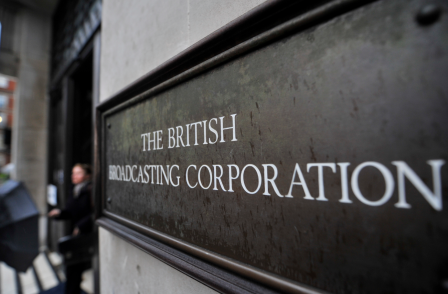
Fleet Street is just a street. Press conferences do not exist. A spokesperson cannot be quoted. News is news – it cannot be good or bad.
These are just a few of the rules set out in the BBC’s editorial style guide, which the corporation released last week.
It will come as a surprise to few that ‘journalese’ should, in general, be avoided by BBC journalists.
“Bonk, cops, fags, ongoing and upcoming” are best avoided altogether, but words such as “blast or slam” are acceptable if used sparingly.
As well as Fleet Street jargon being banned, BBC journalists are also advised that the name ‘Fleet Street’ “is no longer a useful synonym for the print media”.
In addition, it goes without saying that the impartial BBC cannot decide whether something is good or bad news.
“For example, a cut in interest rates must not be characterised as ‘good news on interest rates’ – since, while mortgage holders will be pleased, savers certainly will not be. So the term is acceptable only with a qualification (eg: There is good news for house buyers). The safest approach is simply to say what has happened – and let the reader decide whether it constitutes good news or bad.”
More surprising, perhaps, is the fact that journalists for the corporation are forbidden from writing ‘press conference’, “which is too narrow a term and might exclude some categories of journalist”. Instead, BBC journalists go to ‘news conferences’.
Another banned term is ‘spokesperson’, which is deemed “ugly”. “Spokesman and spokeswoman are possible alternatives. Where it is not obvious, consider rephrasing the sentence – eg: The company said… or A company statement said… or A company representative said… etc.”
Meanwhile, swear words are to be avoided unless “integral to the story”. The BBC does not use asterisks and advises that the journalist should, if possible, "omit the offending term from a direct quote or use indirect speech".
"You may include some swear words, if you think their omission seriously undermines the impact of the story – but this is subject to the approval of a senior editor. Swear words should be clearly signposted, either by saying early in the story that strong language is involved or by having a standalone warning at the top. There is no ‘Top 10’ list of swear words, but do bear in mind that racial and religious terms may be considered very offensive. If in doubt – leave it out.”
Here are some other UK style journalism styleguides available online:
Email pged@pressgazette.co.uk to point out mistakes, provide story tips or send in a letter for publication on our "Letters Page" blog
